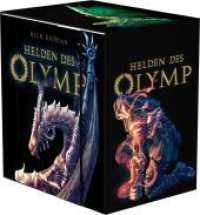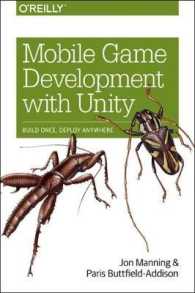- ホーム
- > 洋書
- > 英文書
- > Religion / Ethics
Full Description
Entering the debate about the development of Christology among Jesus' earliest followers, this volume critiques both the traditional evolutionary view that posited an elementary early Jewish Christology that developed in complexity as it was increasingly Hellenized and the more recent attempt to see a full-orbed Christology both as early and as Jewish, not Hellenistic, in its categories. It contends that during the first 100 years Jesus' followers employed four models from their milieu, Jewish and Greco-Roman, both to understand and to communicate their Christologies. These models were appropriated because they were appropriate vehicles for expressing the impact of Jesus on them, past, present, and future.
Contents
PART ONE: SYNTHESIS
Chapter 1 The Development of Christology in the First 100 Years: A Modest Proposal
PART TWO: BUILDING BLOCKS
Chapter 2 The Problem of Pre-Existence in Philippians 2:6-11
Chapter 3 The Concept of Immortals in Mediterranean Antiquity
Chapter 4 The Myth of a Descending-Ascending Redeemer in Mediterranean Antiquity
Chapter 5 The Gospel and the Gospels
Chapter 6 Expository Article: Luke 1:26-31
Chapter 7 And the Word Became Flesh: When?
Chapter 8 The Christology of the Apocalypse
Chapter 9 Miraculous Conceptions and Births in Mediterranean Antiquity
Index of Modern Authors
Index of Ancient Sources







